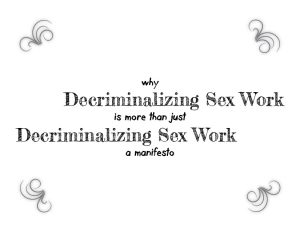“Truth and Repair,” Judith Lewis Herman’s first general audience book (I think) since the classic “Trauma and Recovery” (1992) just came out this week, and I read it as quickly as I could get my hands on it. It’s a profound book, showing how our criminal justice system, even when it functions as best as feminists have imagined it could, often (usually) does not lead to justice for survivors of sexual violence. Justice, according to Herman, is the fourth and final stage of healing, updating the three-stage theory she first proposed in “Trauma and Recovery.”
In the popular imagination, survivors are perceived to be primarily demanding retribution and financial compensation because these are the only things our (and probably any other democratic) legal system is capable of delivering. But what many survivors actually want is justice, which requires community-wide acknowledgement of truth, sincere reflection, remorse, and pledge to not reoffend on the part of the person and institutions that have caused harm, as well as financial and psychological redress.
Herman’s new book shares many examples of healing justice practices that are being experimented, some of which are projects that my friends are engaging in (yay Love WITH Accountability!). There are also dangers to some of these approaches, for example when restorative justice is institutionalized by the same criminal justice system with its own baggages, or when liberal criminal justice reform efforts overlook real needs of survivors. While Herman distances herself from police and prison abolitionism as she believes that the criminal justice approach can be combined with alternative practices that are often promoted by abolitionists, she does recognize the criminal justice system’s failure to deliver justice for vast majority of sexual violence survivors or to encourage sincere reflection and remorse on those who have caused harm, often exacerbating violence in our communities.
So much of the book resonates with me, as a survivor who came of age during the 1990s first becoming an activist as a volunteer for a local rape crisis center. I did not have the emotional capacity to work as a crisis counselor at the time, so I worked at the office editing newsletters, writing press releases, and helping domestic violence survivors with updating and printing their resume on WordPerfect for MS-DOS, which took skill. Because “Trauma and Recovery” and the awareness it proliferated in the 90s was important to me, it is all the more saddening to me that Herman heavily mischaracterizes the feminist debate over sex trade in favor of her own position, which she (and her allies) refer to as the equality model.
“Equality model,” which is also called the “Nordic model,” refers to the policy of asymmetrically criminalizing prostitution, decriminalizing people who perform sexual labor as “victims” rather than criminals while increasing criminalization for buyers and facilitators of commercial sex. In contrast, growing number of human rights, feminist, and anti-trafficking organizations, along with sex worker groups, call for the full decriminalization, which means removing all laws against commercial sex trade among consenting adults. Organizations such as Amnesty International, American Civil Liberties Union, anti-trafficking coalition Freedom Network, and trafficking survivor organization National Survivor Network endorse full decriminalization, not because they think buying and selling sex is great, but because they believe that it is the best way to reduce abuse and exploitation of people engaged in the sex trade. Proponents of “equality model” believe that full decriminalization would legitimize and expand the commercial sex trade, leading to more trafficking and exploitation.
Which approach better protects health, safety, and dignity of people in the sex trade is an empirical question, and reasonable people can disagree over this, as it is difficult for social science research to unequivocally answer questions such as these. I believe that it is safe to assume that either approach would not sufficiently protect people who are currently in or may potentially be drawn into the sex trade by itself: we need broader societal, economic, and cultural transformation to end poverty, extreme economic disparities, racism, sexism, homophobia/transphobia, inhumane immigration policies, etc. rather than a simple change to the criminal code (see my thoughts on this).
I may have been disappointed, but would not have felt hurt, if Herman had advocated for her chosen position in a manner that was intellectually honest, which is to say that reasonable people, including many survivors and anti-sexual violence advocates, disagree with her. But instead, she characterizes those who support full decriminalization as “neoliberal or libertarian or ‘sex-positive’ feminists” and “global sex industry” that advocate for the “market forces to rule.” She dismissively refers to the term “sex worker” as an inappropriate euphemism (preferring the phrase “prostituted people”), ignoring that the term was coined by sex workers organizing for rights and dignity as workers and is now being used by workers around the world in that effort in refusal to simply let “market forces to rule” over them.
In the conclusion, Herman applauds the Survivor’s Agenda, a 2020 collective national statement endorsed by dozens of organizations that are fighting sexual violence. Inconveniently for her, Survivor’s Agenda explicitly calls for the full decriminalization of sex trade as one of the seven key policies that would “move us forward.” And yet, Herman claims that “Nordic model is quite compatible with the Survivor’s Agenda.” She points out that the Survivor’s Agenda is only calling for the decriminalization of “consensual” sex trade (standard in any advocacy for full decriminalization, as none of us support legalizing unconsensual sexual acts), and interprets this wording to support her own position, arguing that almost all prostitution is actually non-consensual “since they are mostly recruited from situations of racial subordination, desperate poverty, childhood abuse, and homelessness.”
This is plainly dishonest reading of the Survivor’s Agenda. Indeed, the actual web page displaying the Survivor’s Agenda links the word “decriminalization” to the official web page of the New York State Senate Bill S6419 which she criticizes earlier in the book. So it is clear that she is completely mischaracterizing the Survivor’s Agenda.
It would have been different if Herman honestly stated “I support the Survivor’s Agenda, but disagree with this one particular part.” Instead, she distorted the clear meaning of the statement, which is based on countless hours of conversations among survivors and survivor advocates led by women of color survivors and leaders Tarana Burke (me too International, Mónica Ramírez (Justice for Migrant Women), Fatima Goss Graves (National Women’s Law Center), and Ai-jen Poo (National Domestic Workers Alliance). But why? My guess is that if she had admitted that the Survivor’s Agenda, which reflects voices of many survivors, survivor advocates, and prominent women of color survivor activists, supports the full decriminalization of adult consensual sex trade, it would expose her earlier deception that it was supported by “neoliberal or libertarian or ‘sex positive’ feminists” who want “market forces to rule.”
If she were to accurately express her genuine disagreement with the Survivor’s Agenda, she would also have to acknowledge that this is a debate in which reasonable people, including survivors of sexual violence, disagree. She would not be able to mischaracterize them as representatives of the interests of pimps and sex buyers or dismiss them as market fundamentalists, and instead she would be forced to engage with a substantial number of survivors and survivor advocates who support full decriminalization because they want to reduce and end sexual violence as much as she does.
As a survivor who was tremendously influenced by her earlier work and also still find this book deeply affirming and life-changing despite its flaws, I feel hurt by this apparent dishonesty and the lack of respect for survivors who spent countless hours developing and building consensus for the Survivor’s Agenda. If anyone is listening, I call on endorsers of the Survivor’s Agenda to contact Herman to set the record straight, and want to ask someone close to Herman to ask her to make amends to survivors she felt convenient to dismiss and distort.




